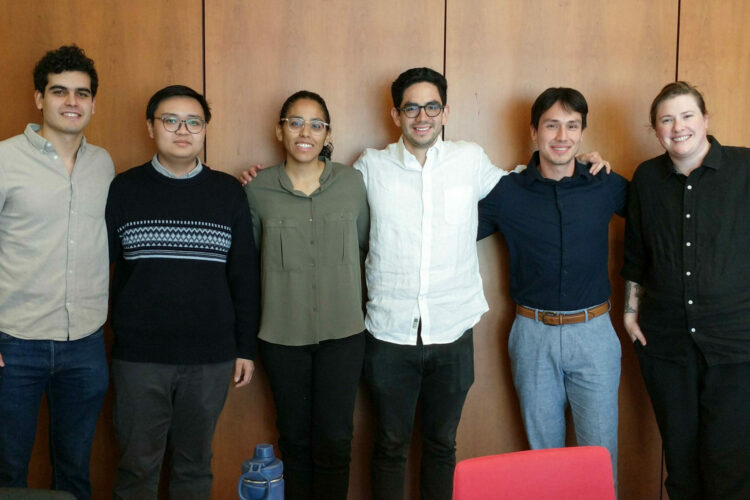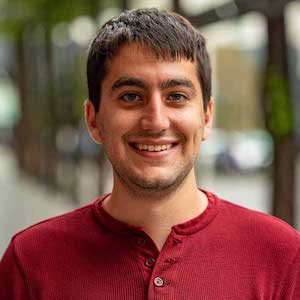DSI Assistant Professor Chenhao Tan Receives Sloan Research Fellowship
Chenhao Tan, assistant professor of computer science and data science at the University of Chicago and affiliate of the Harris School of Public Policy, was one of six UChicago faculty to receive the prestigious Sloan Research Fellowship, awarded to early-career scholars with the potential to make substantial contributions to their fields.

Tan, who joined UChicago CS and the Data Science Institute in January 2021, studies human-centered artificial intelligence – AI systems that work with humans on important decision-making tasks in medicine, law, and other fields. His research in the Chicago Human+AI (CHAI) Lab blends data science, natural language processing, machine learning, human-computer interaction, and computational social science to develop and evaluate tools for human-AI collaboration.
“There are rich opportunities for AI to improve high-stakes decision making and bring positive benefits to billions of people,” Tan said. “However, it remains unclear how to best fit AI into the decision making process. The black-box nature of current AI models limits possible human-AI interaction and makes full automation highly undesirable, especially given the mounting evidence that AI may rely on spurious correlations and cause harm.”
As an alternative, Tan develops models around principles of data-driven insights and human-centered explanations. His past research has looked at social media data to determine how to construct more persuasive arguments and the likelihood of information going viral, and has explored what tasks humans are comfortable delegating to AI and how a “machine-in-the-loop” system can assist with writing tasks.
Last year, Tan received a Google Research Scholar award to study how natural language models, such as the headline-grabbing GPT-3 system, can be made more robust and harder to trick through making how they arrive at their outputs more transparent. He also organized a Human + AI conference at UChicago, convening prominent experts in this burgeoning field to think about the potential of this technology for society.
Recently, he has investigated how to create more effective explanatory responses from AI by incorporating human goals, intuitions, and prior knowledge. A 2023 paper, with PhD students Han Liu and Chacha Chen, postdoctoral researcher Shi Feng, master’s student Yizhou Tian, and assistant professor Yuxin Chen, built a decision support system that leverages human perception of similarity to support its conclusions.
For instance, in recommending that a chest-xray should be diagnosed as pneumonia or not, it provides a similar-looking example – by human standards, not according to machine learning parameters – for user comparison. Their learned human-compatible representations enable laypeople to achieve an accuracy of almost 80% in pneumonia classification.
Additional work has examined whether customizing AI explanations to the prior knowledge base of users can help augment their decision-making process, instead of merely replicating it. Amidst the recent hype around GPT-3 and applications such as ChatGPT – and the attendant fears about computers replacing human work – Tan sees opportunities for creating more constructive AI assistants for workers in any field.
“I think a lot of AI work is about emulating what a human can do. My interest is more about extending what people can do,” Tan said. “AI can know what questions that people typically miss and help people ask that question to get the information that they need. On the flip side, AI can also help people process information. It’s useful to know what knowledge people already have, then we can tailor AI to best complement their existing knowledge and provide the most valuable information for each individual.”
Tan is the second UChicago CS faculty member to receive the Sloan Research Fellowship in two years. In 2022, assistant professor Pedro Lopes received the honor for his research on human-computer integration.

Community Data Fellow Stephania Tello Zamudio helps broaden internet access for Illinois residents

Transform cohort 3 participant Healee uses AI to improve healthcare

Incoming UChicago Data Science and Computer Science Associate Professor raises additional $106 million in new funding round for company, Together AI
